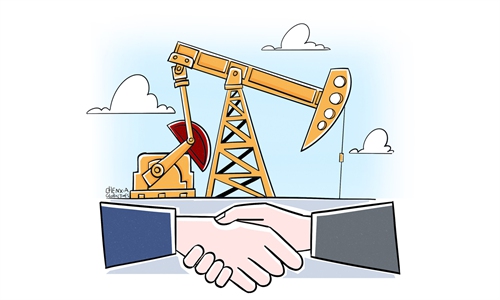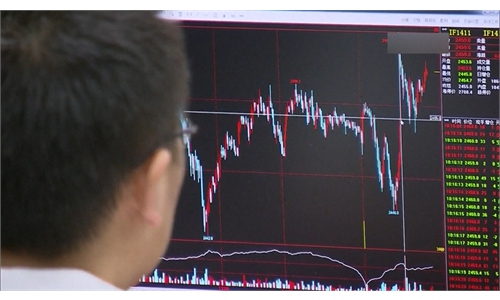
A view of Shanghai Photo: VCG
Top-tier sovereign wealth funds from the Middle East, including the Abu Dhabi Investment Authority and the Kuwait Investment Authority, significantly increased their holdings in A-share listed companies through the Qualified Foreign Institutional Investor (QFII) channel in the first quarter, according to market data.
The influx of foreign capital, which comes as China has been actively stabilizing the capital market and stepping up its opening-up, shows foreign investors' confidence in China's economic outlook, experts said.
As of the end of the first quarter, the Abu Dhabi Investment Authority held significant positions in 27 A-share companies, with a total market value of about 11.29 billion yuan ($1.56 billion), an increase of more than 1 billion yuan from the end of 2023.
The Kuwait Investment Authority also appeared in the top 10 list of shareholders in 30 A-share companies, with a total market value of 4.52 billion yuan, according to financial data provider Wind Information.
Middle Eastern sovereign wealth funds also increased their research on A-share companies. According to Wind Information, the Abu Dhabi Investment Authority has researched nine listed companies since the beginning of the year, covering sectors such as new energy and biopharmaceuticals.
In addition to Middle Eastern sovereign wealth funds, Singapore-based Temasek Holdings has allocated more than 20 percent of its portfolio to China for the long term. Singaporean sovereign wealth fund GIC also increased its allocation to Asia and decreased its exposure to the European market, according to media reports.
Investment banks including Goldman Sachs and UBS have become more positive on stocks in China. Goldman analysts said that A-share valuations may rise by 40 percent, while UBS raised its rating on the MSCI China Index and Hong Kong stocks to overweight, the South China Morning Post reported.
Dong Shaopeng, a senior research fellow at the Chongyang Institute for Financial Studies at the Renmin University of China, told the Global Times on Monday that the increase in holdings of Chinese assets by Middle Eastern sovereign wealth funds is a response to global structural adjustments. It also indicates the confidence and optimism of Middle Eastern institutions in China's economic development.
The risks of US assets are increasing due to excessive asset price inflation, which may lead to a correction, while Europe also faces uncertainties due to the ongoing Ukraine crisis, Dong said.
"In comparison, China has controlled inflation well, and its economy is relatively stable and still in the recovery stage, with high potential returns on investment," Dong added.
China's GDP grew by 5.3 percent in the first quarter of 2024, well above market expectations, as the world's second-largest economy got off to a robust start for the year.
New measures adopted by the Chinese securities regulator to stabilize the market and China's continued opening-up are also reasons for the influx of foreign capital, experts said.
In a latest move, the People's Bank of China, the central bank, issued a notice on Monday to further enhance interest rate swap markets between the Chinese mainland and Hong Kong, to facilitate high-quality opening-up in the realm of the finance market.
To enrich the product types, interest rate swap contracts with payment cycles based on the International Monetary Market dates will be accepted for clearing to align with mainstream products traded globally and meet the diverse risk management needs of domestic and overseas investors, according to the notice.
So far this year, China has implemented a series of new measures to stabilize the confidence of domestic and foreign investors.
On April 12, China's State Council, the cabinet, issued a nine-point guideline to tackle risks, promote high-quality development in the capital market, and create more opportunities for domestic and foreign investors.



